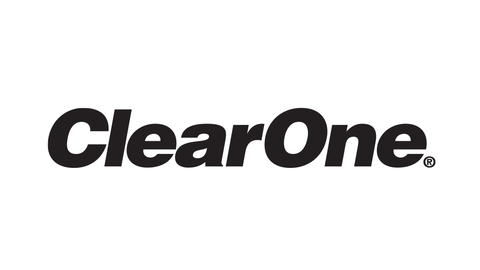Europe's Arsenal: Dutch Minister's Bold Plan to Unify Military Procurement
Finance
2025-04-14 04:30:00Content

In a bold move to strengthen European defense capabilities, Dutch Finance Minister Eelco Heinen has championed a groundbreaking approach to military procurement. During a recent meeting with European Union finance ministers in Warsaw, Heinen passionately advocated for a collaborative defense equipment purchasing mechanism that could revolutionize how European nations approach military spending.
The innovative proposal aims to enhance security while simultaneously controlling costs, a delicate balance that has long challenged defense planners. Heinen's vision extends beyond traditional EU boundaries, proposing an inclusive model that could potentially incorporate non-EU countries like Norway and the United Kingdom.
"You get more security for the same euro," Heinen declared, succinctly capturing the essence of the proposed strategy. His endorsement aligns with a policy paper by the Brussels-based think tank Bruegel, which suggests that pooled procurement could significantly optimize defense investments across Europe.
By promoting this joint procurement approach, Heinen is signaling a pragmatic and forward-thinking strategy that could reshape European defense cooperation. The proposal not only promises potential cost savings but also represents a strategic move towards greater military interoperability among European nations.
European Defense Procurement Revolution: A Paradigm Shift in Collaborative Security Strategy
In an era of complex geopolitical challenges, European nations are increasingly recognizing the critical importance of collaborative defense strategies that transcend traditional national boundaries. The emerging discourse around joint defense equipment procurement represents a transformative approach to regional security, promising enhanced strategic capabilities while optimizing financial resources.Reimagining Defense Spending: Efficiency Meets Strategic Innovation
The Economic Rationale of Collaborative Defense Procurement
The contemporary landscape of international defense procurement is undergoing a profound metamorphosis, driven by economic constraints and strategic imperatives. European policymakers are increasingly exploring innovative mechanisms that can simultaneously reduce expenditure and enhance collective security capabilities. The proposed joint procurement framework represents a sophisticated approach to addressing these multifaceted challenges. Financial optimization remains a critical consideration in this strategic recalibration. By consolidating purchasing power and standardizing equipment specifications, participating nations can achieve significant economies of scale. This approach not only reduces individual national procurement costs but also creates a more integrated and interoperable defense ecosystem across European territories.Geopolitical Implications of Integrated Defense Strategies
The proposed procurement mechanism extends far beyond mere financial considerations, representing a nuanced diplomatic instrument with profound geopolitical ramifications. By creating an inclusive framework that potentially incorporates non-EU nations like Norway and the United Kingdom, European leaders are signaling a commitment to broader collaborative security architectures. Such an approach challenges traditional paradigms of national defense procurement, promoting a more interconnected and flexible strategic environment. The potential for enhanced technological exchange, standardized military capabilities, and improved cross-border cooperation represents a significant evolution in European defense thinking.Technological Synchronization and Strategic Alignment
Technological harmonization emerges as a critical component of this innovative procurement strategy. By establishing common technical standards and shared procurement protocols, participating nations can accelerate technological innovation and reduce redundant research and development expenditures. The proposed mechanism creates opportunities for more sophisticated defense technology transfer, enabling smaller nations to access advanced capabilities that might otherwise be financially prohibitive. This democratization of defense technology represents a potentially transformative approach to regional security infrastructure.Challenges and Potential Implementation Strategies
Despite the compelling advantages, implementing such a comprehensive procurement framework will inevitably encounter complex diplomatic and logistical challenges. Variations in national defense priorities, budgetary constraints, and technological capabilities must be carefully navigated to ensure successful implementation. Successful execution will require unprecedented levels of diplomatic coordination, transparent communication protocols, and a genuine commitment to shared strategic objectives. Policymakers must develop flexible mechanisms that can accommodate diverse national interests while maintaining the overarching goal of enhanced collective security.Future Outlook and Strategic Potential
The emerging joint defense procurement concept represents more than a mere financial strategy; it embodies a fundamental reimagining of European security cooperation. As geopolitical landscapes continue to evolve rapidly, such innovative approaches will become increasingly critical in maintaining regional stability and strategic resilience. By embracing collaborative procurement models, European nations can create a more dynamic, responsive, and cost-effective approach to collective defense. The potential long-term benefits extend far beyond immediate economic considerations, promising a more integrated and strategically aligned continental security framework.RELATED NEWS
Finance

Green Energy Revolution: AIX Launches Renewable Certificates Trading Platform
2025-03-06 07:00:21
Finance

Money Matters: How Personal Finance Squeeze Drives Startup Founders to the Exit
2025-02-23 08:10:16
Finance

Profits Surge: FB Financial Reveals Q1 Earnings Insights in Upcoming Call
2025-04-01 15:00:00





